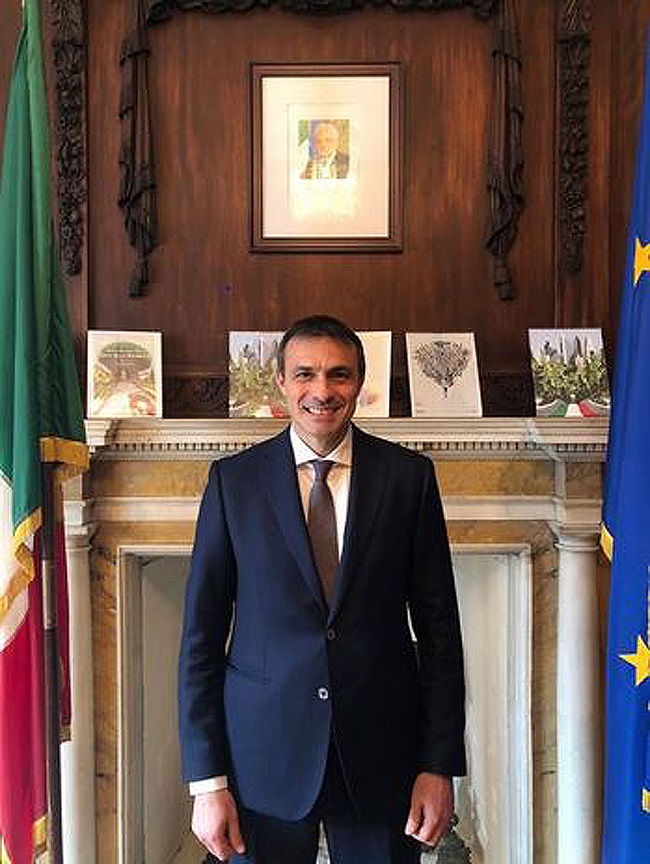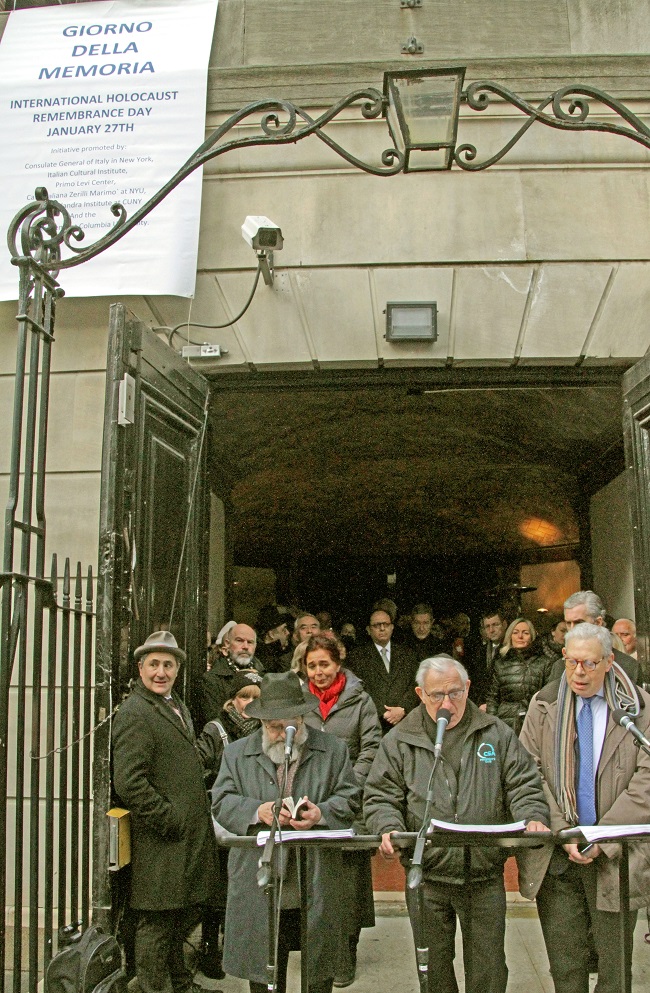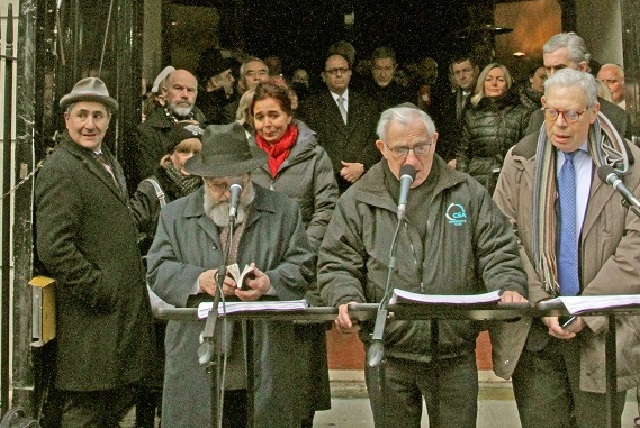By Joseph M. Calisi ©2022 All Rights Reserved
Italian Consulate, New York City, January 27, 2022
The “Giorno della Memoria” or Day of Remembrance ceremony is performed every year since January 27, 2000 in honor of the memory of all the victims of the Shoah (the mass murder of European Jews and other groups by the Nazis during World War II). This International Holocaust Remembrance Day was officially and unanimously approved by the Italian Parliament on that date.
Every year the Consulate General of Italy in New York together with the Centro Primo Levi, the Italian Cultural Institute, Casa Italiana Zerilli Marimo at NYU, the Italian Academy at Columbia University, the Calandra Institute at CUNY, the Scuola d’Italia Guglielmo Marconi, Magazzino Art and the Center for Italian Modern Art (CIMA) commemorate the victims of the Nazi-Fascist persecution with a series of cultural initiatives aimed at preserving the memory of those events and educating the younger generations.
In New York City, the event is held from 9 am to 2 pm after speeches and the reading of the names of the victims that are preceded by the singing of ‘The Kaddish”, a Jewish prayer before the reading of the names.
Recently, I had a chance to interview the Consul General of Italy in New York, Fabrizio Di Michele.

L’Idea Magazine: Are you highlighting any particular events, locations (towns, etc) and people that protected the Jews?
Fabrizio Di Michele: The Ceremony of the reading, which takes place regularly at the Italian Consulate General since 2001, on the occasion of the Holocaust Remembrance Day (Giorno della Memoria) does not focus on individual stories or particular events. Our commemoration is devoted to the reading of the names of the Jews deported from Italy and Italian territories during World War II. It is a list of over 9.200 names, based on the research of the Center of Jewish contemporary documentation in Milan. Our books, provided by the Primo Levi Center, a key partner of the Consulate in the organization of the event, contain also some background information on each of the victims’ names.
L’Idea Magazine: Have you been in contact with any of their descendants?
Fabrizio Di Michele: I had only recently the privilege and emotion to know personally a survivor of Auschwitz, here in New York. A special person who struck me, not only for her energy and vitality in spite of her old age and deep wounds, but also for the lingering faith in the capacity of the human being to improve himself and not repeat the same mistakes.
L’Idea Magazine: Is there an overarching theme from the past to the present about this event?
Fabrizio Di Michele: The event is all about keeping alive in the present what happened in the past. It is about preserving the memory of some unspeakable historical events and suffering. It is also about educating younger generations about the Shoah while raising awareness of antisemitism, racism, and xenophobia, which still nowadays are sadly widespread. I believe that remembering the Holocaust and what it meant concretely for millions of human beings is a moral and political imperative and we should never assume that we have done enough about it.
L’Idea Magazine: Can you discuss the network that saved them that compares to the Underground Railroad in the US?
Fabrizio Di Michele: I am not a historian, nor an expert but I think it is hard to draw comparisons between the Underground Railroad and the historical developments in Italy during WW II. Actually, there were some Jewish organizations as well as the National Liberation Committee (i.e. the national organization of “partigiani” which fought against Nazi-fascism in Italy, notably between 1943 and 1945) that helped some Jews to survive or escape. However, there was not a systematic network or organization operating at the local, or even regional levels. On the contrary, there are so many stories of individual Italians recalled for their personal commitment to save some Jewish families or individuals, and probably many more are still unknown.

Today’s ceremony began with a short speech by the Italian Consul-General. He led the event in front of the Italian Consulate by saying that today is a day of remembrance and is an annual event in Italy since the Italian Parliament declared this day in 2000.
Photo by Joseph M. Calisi ©2022 All Rights Reserved
L’Idea Magazine: What was Italy’s role in the Holocaust and was there an organized network that was in place by the government or individuals?
Fabrizio Di Michele: We should never forget that Italy during the fascist regime introduced the racial laws against Jews and then collaborated with the German Nazi in the persecution of Jews. Now it is also a fact that the deportation of Jews from Italy and Italian (or Italian controlled) territories became systematic after the Nazi occupation following the armistice (i.e. the surrender on September 8th, 1943 and the first fall of Mussolini). However, we should not be complacent about our own historical past and responsibilities. Hence the importance of the Giorno della Memoria, which the Italian parliament officially recognized through a national law years before the UN Resolution on the Holocaust Remembrance day
L’Idea Magazine: Thank you for conducting this interview with me.
_







